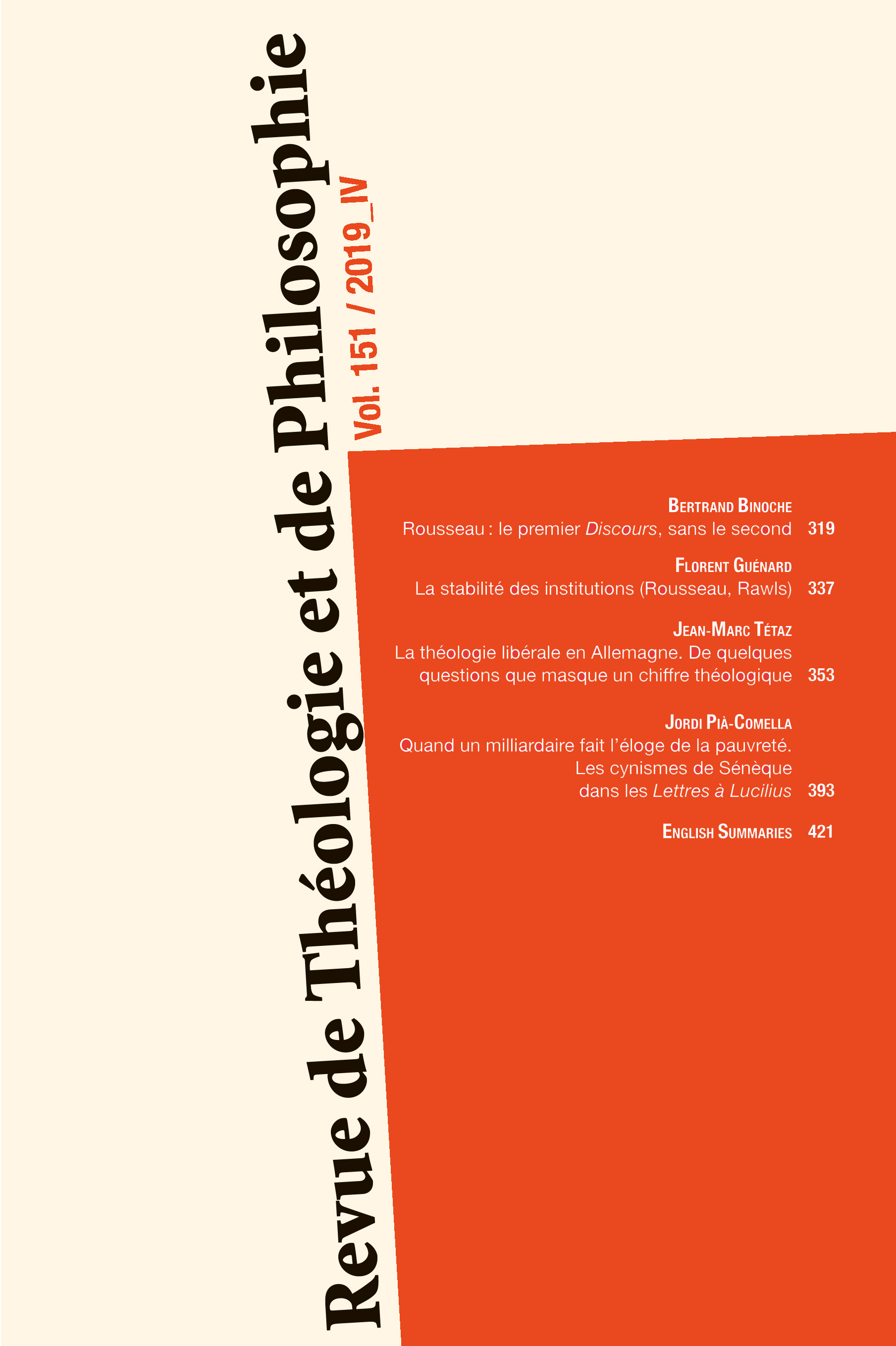When a Billionaire Praises Poverty
Seneca’s Cynicisms in his Moral Letters to Lucilius
Abstract
References to Cynic philosophy are very infrequent in Seneca’s Moral Letters to Lucilius. And yet, the Roman philosopher adopts are very ambivalent attitude toward it: as he vehemently condemns some of his contemporary Cynics for their indigence and their freedom of speech, he sets up Diogenes and his friend Demetrius as models of virtue, especially with regard to their utter indifference toward material goods. Moreoever, Seneca’s political and personal situation leads him to pay close attention to the ideal of autarcy. Consequently, far from limiting itself to explicit mentions of Cynicism, this article seeks to explore certain traces of it, with the aim of disclosing a complex network of motifs and themes which, albeit not specifically Cynic, are akin in varying degrees to that philosophy. With its relations to philosophical traditions, and having undergone certain modifications in order to fit Seneca’s personality as an extremely wealthy Roman and as a mere Stoic student and philosopher, Cynic asceticism is thus reshaped in particular ways. In this sense, Seneca’s Moral Letters of Lucilius represent a key turning point in the inculturation of Cynicism in Rome.
How to Cite
More Citation Formats
Issue
